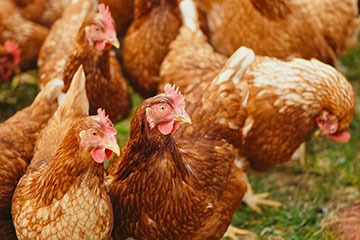Seasonal Flu Prevention
The single best way to prevent the flu is to get a flu vaccine each season.
There are two types of flu vaccines:
- “Flu shots” — inactivated vaccines (containing killed virus) that are given with a needle. There are three flu shots being produced for the United States market now.
- The regular seasonal flu shot is “intramuscular” which means it is injected into muscle (usually in the upper arm). It has been used for decades and is approved for use in people 6 months of age and older, including healthy people, people with chronic medical conditions and pregnant women. Regular flu shots make up the bulk of the vaccine supply produced for the United States.
- A hi-dose vaccine for people 65 and older which also is intramuscular. This vaccine was first made available during the 2010-2011 season.
- An intradermal vaccine for people 18 to 64 years of age which is injected with a needle into the “dermis” or skin. This vaccine is being made available for the first time for the 2011-2012 season.
Anuncios - The nasal-spray flu vaccine — a vaccine made with live, weakened flu viruses that is given as a nasal spray (sometimes called LAIV for “Live Attenuated Influenza Vaccine”). The viruses in the nasal spray vaccine do not cause the flu. LAIV is approved for use in healthy* people 2 to 49 years of age who are not pregnant.
About two weeks after vaccination, antibodies develop that protect against influenza virus infection. Flu vaccines will not protect against flu-like illnesses caused by non-influenza viruses.
The seasonal flu vaccine protects against the three influenza viruses that research suggests will be most common.
When to get vaccinated against seasonal flu
Yearly flu vaccination should begin in September, or as soon as vaccine is available, and continue throughout the flu season which can last as late as May. This is because the timing and duration of flu seasons vary. While flu season can begin early as October, most of the time seasonal flu activity peaks in January, February or later.
Who should get vaccinated?
Everyone 6 months and older should get a flu vaccine each year. This recommendation has been in place since February 24, 2010 when CDC’s Advisory Committee on Immunization Practices (ACIP)voted for “universal” flu vaccination in the U.S. to expand protection against the flu to more people.
While everyone should get a flu vaccine each flu season, it’s especially important that certain people get vaccinated either because they are at high risk of having serious flu-related complications or because they live with or care for people at high risk for developing flu-related complications.
Who else should get vaccinated?
Other people for whom vaccination is especially important are:
- People who live in nursing homes and other long-term care facilities
- People who live with or care for those at high risk for complications from flu, including:
- Health care workers
- Household contacts of persons at high risk for complications from the flu
- Household contacts and caregivers of children younger than 5 years of age with particular emphasis on vaccinating contacts of children younger than 6 months of age (children younger than 6 months are at highest risk of flu-related complications but are too young to get vaccinated)
Source
Key Facts about Influenza (Flu) & Flu Vaccine
Centers for Disease Control and Prevention
July, 2012
Influenza (Flu)
Influeza Vaccine
-
2012-2013 Influenza (Flu) Season
-
2011-2012 Seasonal Influenza (Flu) Vaccine Safety
-
Vaccine Virus Selection 2012-2013 Influenza Season
-
Side Effects to the Seasonal Flu Vaccine
-
Intradermal Influenza (Flu) Vaccination
-
Fluzone High-Dose Seasonal Influenza Vaccine






